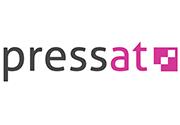
WAN-IFRA Partners With UNESCO To Offer News Literacy Training And Workshop.
In an era of increasing mistrust, misinformation and media avoidance, newsrooms must equip themselves with strategies that reinforce credibility, transparency and civic value. Through this collaboration with UNESCO, WAN-IFRA provides practical, high-impact training for news executives and editorial operations, helping news organisations make journalism's processes more visible, audience engagement more meaningful, and public trust more substantial.
Key training dates and formats
The programme consists of two free online training sessions and one in-person workshop, hosted at WAN-IFRA's upcoming Newsroom Summit, held in Copenhagen on 18-19 November 2025.
Detailed information on the training sessions can be found here.
Who should attend
- Senior editors and newsroom executives seeking to embed news-literacy initiatives into editorial workflows. Media policy and audience-engagement leads tasked with deepening trust and transparency across publications. Attendees of the Newsroom Summit who wish to take their participation further via the live, interactive workshop.
How to register
- O nline trainings: Register in advance here: 12 November and 25 November In-person workshop (Copenhagen, 17 November ): Participants of the Newsroom Summit should email ... to request access.
ABOUT
WAN-IFRA, the World Association of News Publishers, is the global organisation of the world's press, comprising 3,000 news publishers and technology companies and 60 national publishers' associations representing 18,000 publications in 120 countries. With a mission to protect the rights of journalists and publishers around the world to operate independent media, WAN-IFRA provides its members with expertise and services to innovate and prosper in a digital world and perform their crucial role in society. WAN-IFRA acknowledges the essential role of news literacy, defined in the association's Media Literacy Policy, as“the ability to actively seek out credible news, recognise bias, understand how journalism is produced, and apply critical thinking... in civic, educational and professional contexts.”
About UNESCO's Media and Information Literacy initiative: UNESCO regards media and information literacy (MIL) as a core skill set enabling individuals to engage critically with information, navigate digital environments safely, and build trust in information ecosystems - key in the fight against disinformation and for protecting freedom of expression and access to information.

Legal Disclaimer:
MENAFN provides the
information “as is” without warranty of any kind. We do not accept
any responsibility or liability for the accuracy, content, images,
videos, licenses, completeness, legality, or reliability of the information
contained in this article. If you have any complaints or copyright
issues related to this article, kindly contact the provider above.

















Comments
No comment